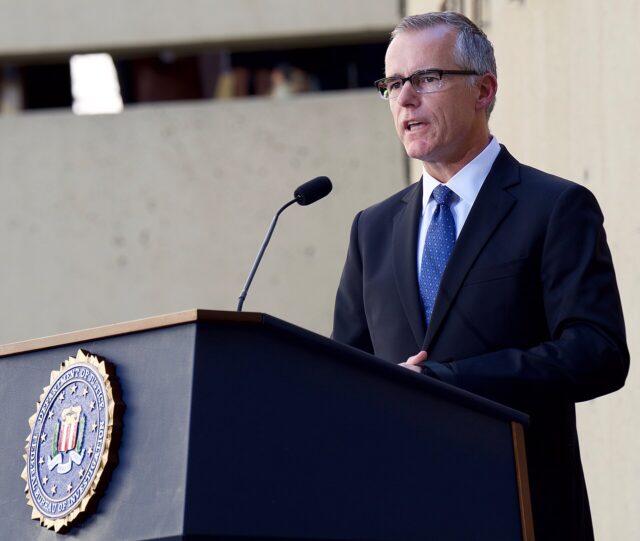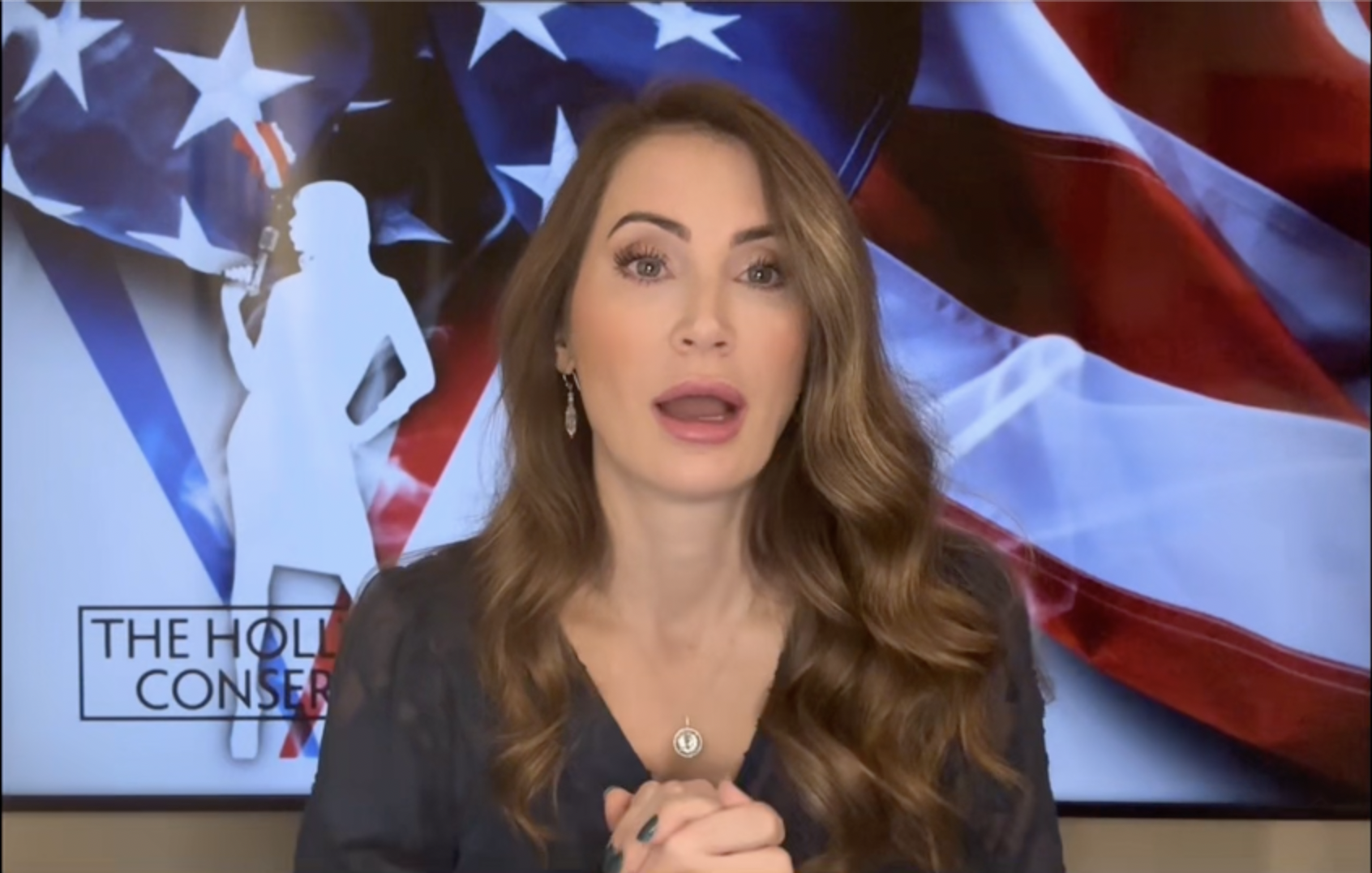
The election of Donald Trump in November 2016 was, for the entrenched political class, a thunderclap. It was not supposed to happen. The experts, the pollsters, the seasoned operatives had assured the country that Hillary Clinton’s victory was inevitable. Yet by the morning of November 9, the White House was preparing to receive a president unlike any in modern history: a political outsider with no government experience, an instinctive distrust of Washington, and a willingness to discard its conventions. For some in the outgoing administration and the permanent bureaucracy, this was not merely a surprise. It was a crisis to be managed, or better yet, undone.
That undoing began in earnest just four months into Trump’s presidency, when Acting FBI Director Andrew McCabe, with the approval of FBI Counterintelligence chief Bill Priestap and General Counsel James Baker, authorized a criminal investigation into the sitting president of the United States. This probe did not arise from fresh evidence of presidential misconduct. It rested on the same thin reeds that had underpinned the Russia collusion narrative since mid-2016: opposition research paid for by the Clinton campaign, laundered through the Steele dossier, and presented as intelligence. It was a case study in how partisan disinformation can metastasize into official action when it finds a willing audience inside the government.
To understand how extraordinary this was, one must appreciate the context. Intelligence reports later declassified in the Durham Annex revealed that, as early as March 2016, the Clinton campaign had hatched a plan to tie Trump to Russian operatives, not as a matter of national security, but as an electoral tactic. These plans were known to senior Obama administration officials, including John Brennan, James Comey, and Andrew McCabe, before the election. Yet when Trump won, the machinery they had assembled did not wind down. It shifted purpose: from preventing his election to destabilizing his presidency.
The first casualty in this internal campaign was Michael Flynn, Trump’s National Security Adviser and one of the few senior appointees with both loyalty to Trump and an understanding of the intelligence community’s inner workings. In late January 2017, Acting Attorney General Sally Yates, an Obama holdover, warned the White House that Flynn had misled them about conversations with the Russian ambassador. The FBI had already interviewed Flynn, in a meeting arranged by Comey that bypassed standard White House protocol. Even Peter Strzok, one of the interviewing agents, admitted they did not believe Flynn had lied. Nevertheless, the incident was used to force Flynn’s resignation on February 13, with Vice President Pence publicly citing dishonesty over sanctions discussions. In hindsight, it is clear this was less about Flynn’s conduct than about removing a man who might have quickly uncovered the flimsiness of the Russia allegations.
Next came Attorney General Jeff Sessions, a Trump loyalist but a DOJ outsider with no prior experience in its leadership. Under pressure over his own contacts with the same Russian ambassador, Sessions recused himself from any matters related to the 2016 campaign on March 2. This decision, encouraged by DOJ ethics officials from the Obama era and accepted without challenge by Pence and other advisers, effectively ceded control of any Trump-Russia inquiries to deep state officials and Obama holdovers. It was the opening the FBI needed.
By mid-May, after Trump fired Comey at the recommendation of Sessions and Deputy Attorney General Rod Rosenstein, the FBI’s leadership was in open revolt. McCabe, Priestap, and Baker, all veterans of the Obama years, debated whether Trump had acted at Moscow’s behest. They even discussed the 25th Amendment and the idea of Rosenstein surreptitiously recording the president. These were not jokes. On May 16, McCabe authorized a full counterintelligence and criminal investigation into Trump himself, premised on the possibility that he was an agent of a foreign power. This was the first such investigation of a sitting president in US history.

The evidentiary basis for this move was paper-thin, much of it drawn from the Steele dossier, a work of partisan fiction that its own author was unwilling to verify. Baker, the FBI’s top lawyer, was a personal friend of Michael Sussmann, the Clinton campaign attorney who had helped funnel the dossier to the Bureau. Priestap, who signed off on the investigation, had overseen its use in obtaining FISA warrants to surveil Trump associates. They knew the source was tainted and the allegations were fiction. They proceeded anyway.
The day after the investigation formally opened, Rosenstein appointed Robert Mueller as Special Counsel, locking the inquiry beyond Trump’s reach. Mueller’s team, stocked with Democratic donors and Obama DOJ and FBI veterans, inherited the case and its political overtones. For nearly two years, the president governed under a cloud of suspicion, his every move interpreted through the lens of an unfounded allegation.
The impact on Trump’s presidency was profound. Key legislative initiatives stalled. Allies in Congress, warned privately by Pence and others that the investigation was serious, kept their distance. Figures like John McCain, Paul Ryan, and Jeff Flake acted in ways that hampered Trump’s agenda, from blocking Obamacare repeal to threatening his judicial nominations. Inside the executive branch, FBI Director Christopher Wray, another newcomer with no institutional knowledge of the Bureau’s internal politics, declined to purge the officials who had driven the investigation, allowing them to operate until they were forced out by Inspector General findings.
By the time Mueller submitted his report in March 2019, concluding there was no evidence of collusion, the damage was done. Trump’s first term had been defined in large part by a manufactured scandal. The narrative of foreign compromise, though disproven, had justified a Special Counsel, sustained hostile media coverage, and ultimately greased the skids for an unfounded impeachment over Ukraine.
The Durham Annex, unearthed years later, stripped away any lingering doubt about intent. It documented that the Russia collusion story was conceived as a political hit, that it was known to be false by the time it was weaponized in 2017, and that senior intelligence and law enforcement officials chose to advance it rather than expose it. In Madison’s terms, the accumulation of legislative, executive, and judicial powers in the same hands, here, the unelected leadership of the FBI and DOJ, amounted to tyranny.
That Trump survived this onslaught is remarkable. Few presidents, faced with a hostile bureaucracy, disloyal appointees, and a media eager to amplify every leak, could have done so. That the plot failed to remove him does not make it less a coup. It makes it a failed coup, one whose near-success should alarm anyone who values electoral legitimacy.
The lesson is clear. The intelligence and law enforcement apparatus of the United States must never again be allowed to become an instrument of partisan warfare. The use of fabricated opposition research to justify surveillance, investigations, and the effective nullification of an election result is a violation not just of political norms but of the constitutional order. It took years for the facts to emerge. It will take far longer to repair the trust that was lost.
If you enjoy my work, please consider subscribing: https://x.com/amuse.
Sponsored by the John Milton Freedom Foundation, a nonprofit dedicated to helping independent journalists overcome formidable challenges in today’s media landscape and bring crucial stories to you.





These folks obviously never thought they would have to face the music for their crimes. God had other ideas.
Crush the enablers, planners, participants and financers
Publicly humiliate them, even to the point of life in prison at minimum..(guillotine would be a well-placed device)